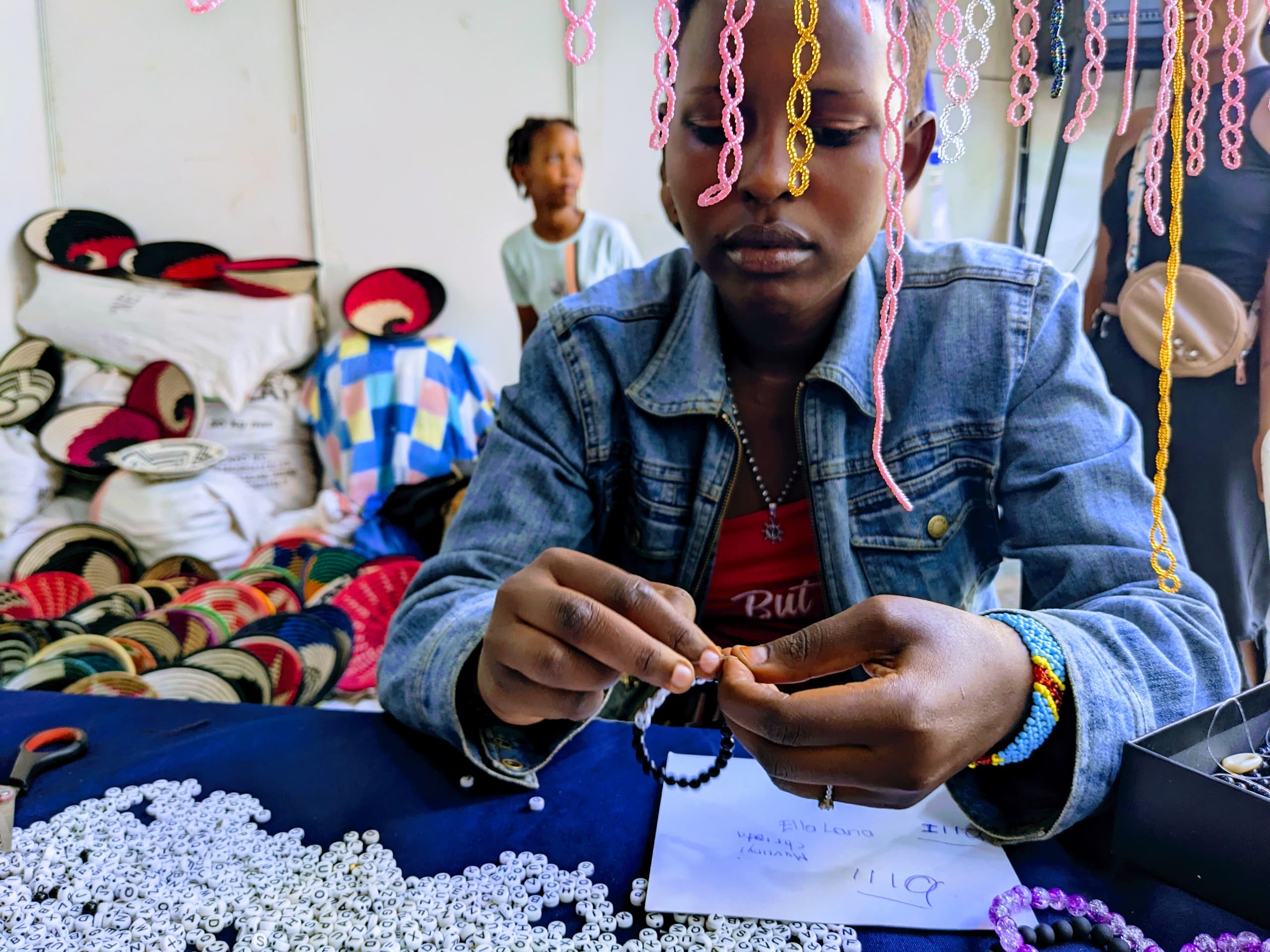The 27th Rwanda International Trade Fair, locally known as “Expo Gikondo”, is in full swing, showcasing a variety of products from over 700 exhibitors across 19 countries. Running from July 25 to August 15, this three-week exhibition at the Gikondo Expo Ground is a centre hub of innovation, commerce, and cultural exchange.
It’s expected to draw in more than 600,000 visitors, according to the Private Sector Federation (PSF).
The Expo is renowned not only for its economic impact but also for its role in job creation, especially for young people. It serves as a dynamic platform where local traders can learn from their international counterparts, enhancing the quality of their products and services.
Youth at the forefront
Kigali Journal took to the ground on August 5, to explore how young entrepreneurs are seizing the opportunities presented by the Expo. Here’s what we discovered from our conversations with five enterprising youth involved in diverse sectors.

Martha Uwineza, a 26-year-old entrepreneur, has established a niche in the educational toys market by working with ‘Iwacu Production,’ a local venture aimed at eradicating the costly importation of educational toys. This initiative supports the progress of home-grown solutions.
Her booth is filled with colourful, interactive toys designed to stimulate young minds including Alphabet, children cleaning tools, digital clocks and more.

She noted: “This is a big step for our country’s local industry, and youth ought to think outside the box. However, parents need to be aware of the products. Toys are the most recent products for children. We no longer use printed designed papers. They should adapt to the movement and be concerned about the early development of their children.”
Beatrice Nsengiyumva runs ‘Giti-Buye Arts Ltd,’ a Made in Rwanda business focused on eco-friendly products. Two years ago, she left her banking career to venture into self-employment.
Using rejected tree trunks, the company creates reusable household items such as lamp holders, sitting room furniture, traditional containers (Inkongoro), drums, pavements, signboards, and other indoor designs. Her venture aims to reduce harmful environmental impacts.
“My inspiration stems from President Paul Kagame’s influence to make our resources useful. Since I started, I’ve been receiving feedback from customers who are surprised by the products and can’t believe they’re homemade,” she said.
Nsengiyumva argues that we must live in harmony with our environment and avoid using young trees. Conservation is essential. “We have vast resources, but many of us are not aware of them,” she added.
Diane Niyorugero, a 30-year-old agripreneur, is promoting organic farming techniques and products. She cultivates mushrooms in Rubavu district, which typically grow in protected indoor areas. Oyster mushrooms can be harvested every 8 days over a period of 3 months. Mushrooms are an ideal crop because they provide substantial nutrition in a small space, and they are grown by recycling agricultural waste.

“We buy a piece of special soil to grow oysters for Rwf800, which yields 2 kg of mushrooms worth Rwf3500. You can harvest every 8 days for 3 months. There is a huge profit in this business, and it requires minimal energy. Many people have realised its benefits and the significant profit in a short time. The expo has helped me gain new customers and learn more about our products,” she said.
Martin Hakizimana, 30, is an engineer by profession who is making waves with his innovative designs and artwork from beads, a craft he learned from his mother. He works with ‘Gogo Isaro Arts,’ where his booth features everything from handmade jewellery to reusable bottle designs, traditional containers, arrows, armors, office tools, and more.

He noted: “It is a family thing. We have more than 40 active workers. We also attend international expos. Our country encourages us to work collectively, and the youth have everything they need. However, few realise this and are still in school studying.



“They shouldn’t squander the opportunities around them. Many don’t want to engage in it. It doesn’t mean they have to come and learn how to do it, but they can also learn how to make a business out of it. They should think outside the box,” Hakizimana said.
The bigger picture
The Expo Gikondo is more than just a trade fair – it’s a breeding ground for young entrepreneurs to thrive, innovate, and make significant contributions to the Rwandan economy. Through self-employment, cooperatives, and various entertainment activities, the youth are leveraging this platform to gain financial independence and professional growth.
Since its inception in 1998, Expo Rwanda, has evolved into a cross border platform for local and international businesses from all continents including Africa,Europe, Asia, and America.

